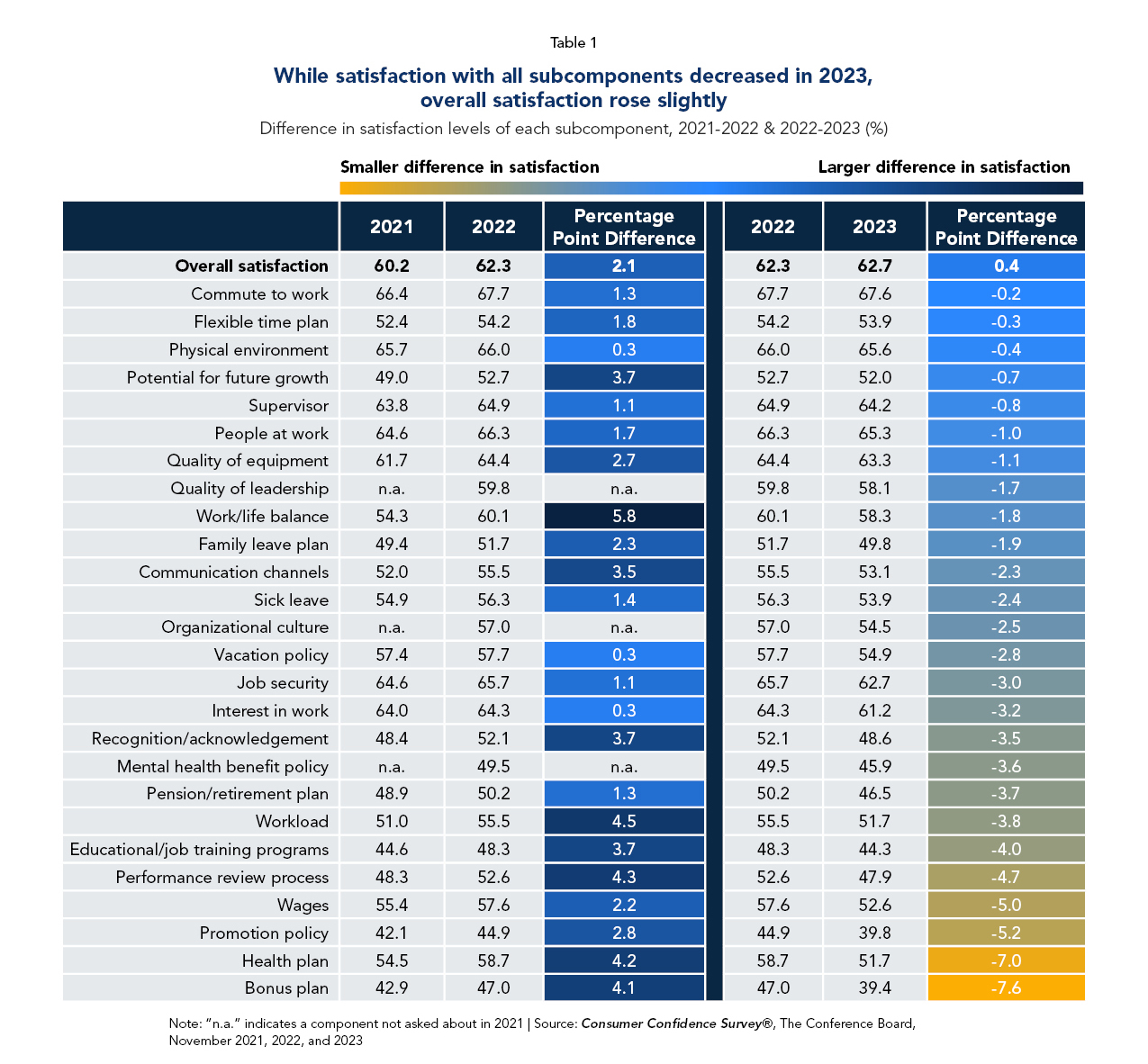


Members of The Conference Board get exclusive access to the full range of products and services that deliver Trusted Insights for What's Ahead ® including webcasts, publications, data and analysis, plus discounts to conferences and events.
06 May 2024 | Press Release
The Great Resignation saw workers quit their jobs in droves—but many are now regretting it. A new survey of US workers reveals those who changed jobs since the pandemic are significantly less satisfied with their jobs than their colleagues who stayed.
What’s causing job hoppers to regret their decision? The Conference Board survey found that leadership and culture saw the greatest gaps in satisfaction between the job switchers and job stayers.
But aside from “people issues” moving the needle, money also matters: Higher wages enticed many to take new jobs in the COVID-era, but those who switched jobs now report less satisfaction with wages. This is possibly due to inflation taking a bigger bite out of their paychecks.
While overall job satisfaction remained virtually unchanged—ticking up 0.4 points to 62.7%—every individual driver of job satisfaction declined. The largest declines were primarily in financial benefits such as bonuses, hard base benefits, wages, and promotions—underscoring the sting of stubborn inflation.
“After more than a decade trending upwards, overall US worker job satisfaction may have finally plateaued,” said Allan Schweyer, Principal Researcher, Human Capital, The Conference Board. “To avoid declining job satisfaction, leaders should maintain or improve key drivers such as flexible work arrangements and career development opportunities while ensuring that wages and core benefits remain competitive.”
Key findings include:
The grass isn’t always greener. Workers who changed jobs since the pandemic began are far less satisfied.
Newer workers are also less satisfied.
Staying put has its benefits: Once an employee hits the three-year mark, satisfaction increases substantially.
Has job satisfaction finally plateaued? Every single driver of satisfaction declined.
Workers feel the bite of inflation.
The least satisfied group is fully on-site workers. The hybrid model wins the day.
Women are far less satisfied than men.
Workers are placing a bigger premium on culture and work experience than before.
“This year’s survey results indicates that job satisfaction is about so much more than wages,” said Diana Scott, US Human Capital Center Leader, The Conference Board. “While wages and key benefits still matter, workers were more focused on positive work culture and experience. Provided pay and benefits are competitive, leaders will gain the most by offering strong growth opportunities, quality leadership, and work-life balance.”

Media Contacts
About The Conference Board
The Conference Board is the member-driven think tank that delivers Trusted Insights for What’s Ahead®. Founded in 1916, we are a non-partisan, not-for-profit entity holding 501 (c) (3) tax-exempt status in the United States. www.ConferenceBoard.org
Media Contact:
Joseph DiBlasi
jdiBlasi@tcb.org

Job Satisfaction: 2015 Edition: A Lot More Jobs—A Little More Satisfaction
September 08, 2015

